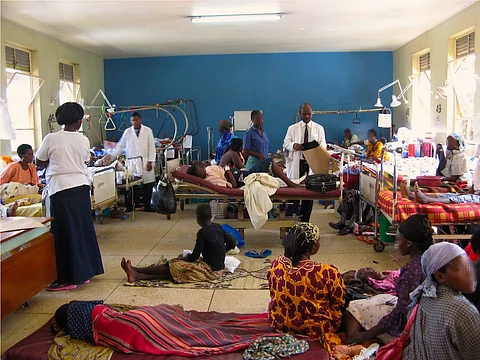

The state of healthcare in Nigeria is a complex and challenging issue, with both significant challenges and areas of progress.
One of the major challenges facing the Nigerian healthcare system is a lack of access to basic medical services, particularly in rural and underserved areas. According to the World Health Organization (WHO), only about 40% of the population has access to basic health services. This is due in part to a shortage of healthcare facilities and trained personnel, as well as limited funding for healthcare programs.
Another major challenge facing the Nigerian healthcare system is the high cost of medical care. Many Nigerians cannot afford to pay for basic medical services, and as a result, they often go without necessary care. This is particularly true for those living in poverty, who are often unable to access even basic health services.
In addition to these challenges, Nigeria also faces a number of other healthcare-related issues, including high rates of infectious diseases, such as malaria and tuberculosis, as well as a lack of access to clean water and sanitation.
Despite these challenges, there have also been some positive developments in the Nigerian healthcare system in recent years. The government has increased funding for healthcare programs, and there have been efforts to improve access to medical services in rural and underserved areas. Additionally, the Nigerian government has also made efforts to combat infectious diseases, such as through the distribution of mosquito nets to prevent malaria.
In conclusion, while the healthcare system in Nigeria faces many challenges, there are also some positive developments taking place. However, much work still needs to be done to improve access to basic medical services, reduce the cost of medical care, and address other healthcare-related issues facing the country.
